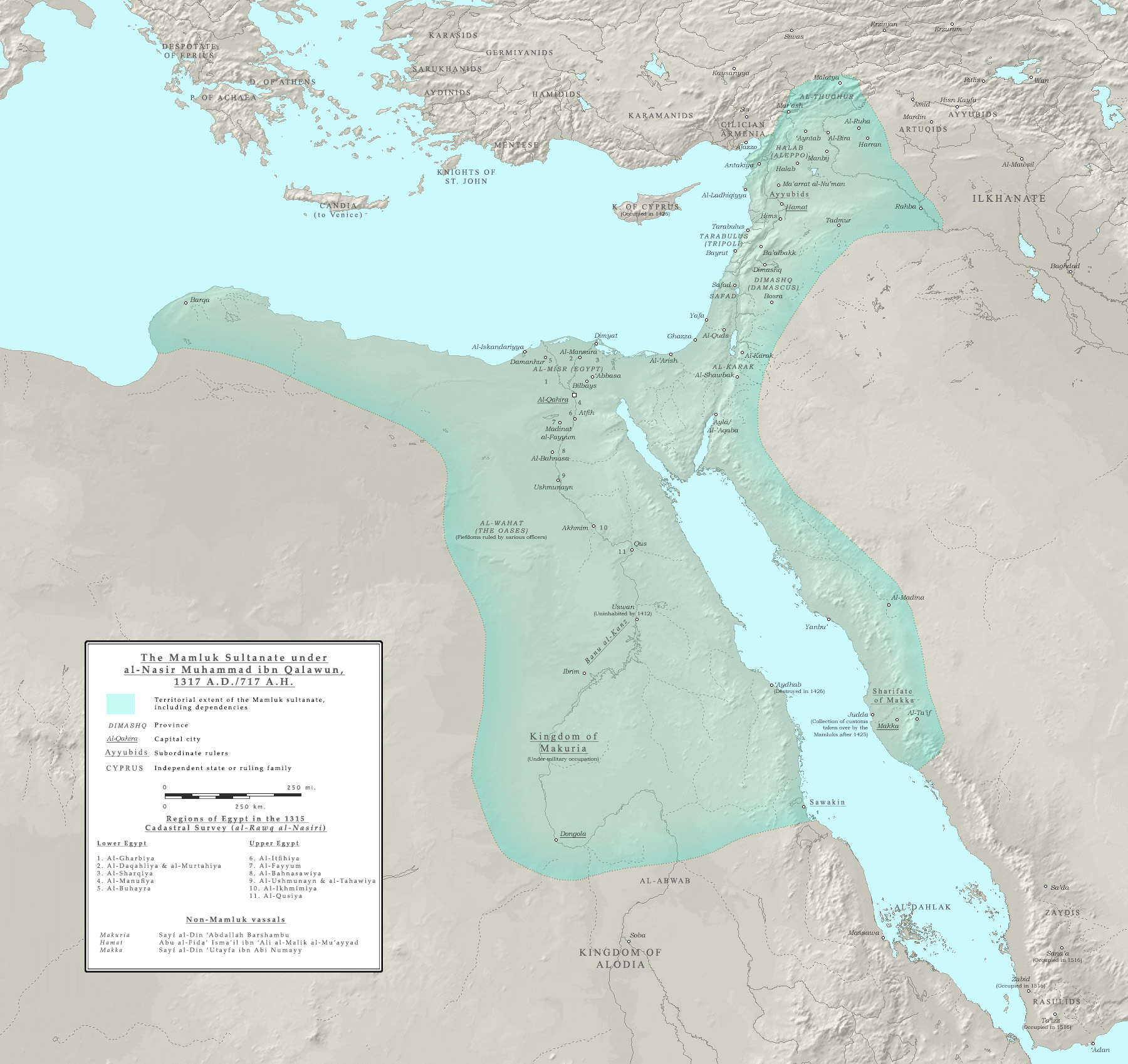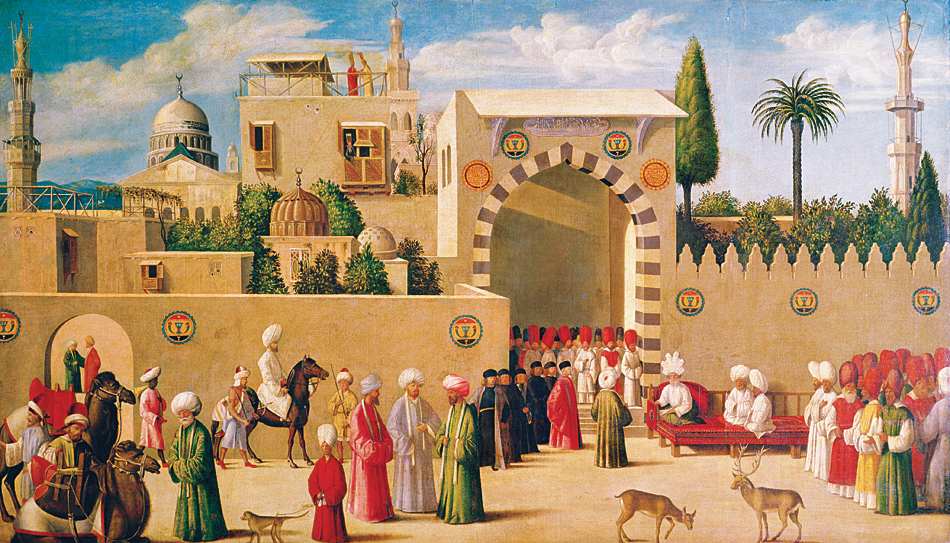Venetian Egypt
Egypt has been an overseas possession of the Republic of Venice since 1355. Although ruled by a Venetian governor, Egypt is granted a certain amount of autonomy. The colony is a major source of textiles and raw materials for Venice, which are then traded into the rest of Europe.
Structure
Egypt is ruled by a governor, appointed by the Doge of Venice. The governor is always a foreign Venetian, generally one who has made a name for himself through trade or military victories.
Other than the foreign governor, Egyptians were allowed to maintain their own governing systems. Beneath the governor are provincial governors known as nuwwab as-saltana (deputy governors). The deputy governor of Cairo is the most senior of these and has the most influence.
These deputy governors are appointed by the governor out of the local populace. They are generally chosen based on how friendly they are to Venice - or how easy to manipulate they are - rather than how good they would be for the actual province. In particular, preference is given to Christians.
History
Prior to Venetian control, Egypt was the centre of the Mamluk Sultanate. This was a medieval realm that held territory throughout the Levant and Arabian peninsula. The sultanate was itself a successor to the Abuyyid Dynastiy, and had ruled since 1250. The rulers were Turkish, and the sultanate was majority Muslim.
The sultanate was strong throughout the 13th and beginning of the 14th century. Things began to fall about in 1347, when Bubonic plague arrived and spread through the populace. Regular outbreaks of plague over the next few years continued to ravage the countryside. Over the next few years, 40% of the population succumbed to the plague, leading to major social and economic upheaval. This chaos led to a period of infighting and coups as surviving emirs attempting to seize control.
In 1355, Venice took advantage of their instability and invaded. Venice had been gradually expanding through the Adriatic throughout the 14th century, and looked to Egypt as a source of textiles and raw materials - chiefly cotton and sugar cane. Already weakened by plague and civil war, the sultanate fell easily to the Venetian army and was taken under their rule.
Venice, which had combated the plague remarkably well in their home city with sometimes draconian policies, instituted these same policies in Egypt - especially densely populated Cairo - to finally put an end to the regular outbreaks of plague.
The policies, which included extreme quarantines and rounding up the sickly and poor in camps outside cities - effectively ended the plague but were very unpopular among locals. The resentment against Venice would linger down the generations as a general antipathy to their foreign rulers.
Egypt remained a profitable colony of the republic throughout the 15th century. Its profitability began to diminish after a trade route around Africa's southern horn was established in the late 15th century, connecting Europe to India's spices without the need of Venice as a middleman. In an effort to regain their position as premier trading empire in Europe, Venice constructed a canal between the Nile river and the Red Sea to facilitate trade. This led to Cairo becoming one of the busiest ports in the world, as it was the stopping point between the East and the West. This canal allowed Egypt to remain one of Venice's most significant assets even into the 17th century, once cotton and sugar more frequently came from plantations in the Altaynan.
Demography and Population
The majority of the populace in Egypt are Arabic-speaking Muslims. Arabic is the language of culture, trade, education, and everyday life. Venetian - a dialect of Italian - is, however, the language of the government and is commonly learned as a second language by the wealthy.
Ethnically, however, Egypt is quite diverse. It has long been a crossroad between Africa and Asia and the locals range from sub-Saharan African to fair-skinned Turks. The most significant ethnic lines are drawn by religion rather than racial or national origin.
Religious Breakdown
- Muslim - 73%
- Coptic Christian - 13%
- Church of Venice - 8%
- Jewish - 3%
- Other - 2%
In general, Christians are given preferential treatment. High ranking administrative jobs are reserved for Christians and go through Christian-only judicial systems for legal disputes. This is especially true of Venessians. The Church of Venice has class connotations in Egypt; it is the religion of the ruling Venetians and converting gains a person higher status with the foreign elites. The majority of converts were Copts. Although the Church of Venice has been in Egypt for over a century at this point and many people whose family have been Venessian for mulitple generations, some Copts still look down all all Egypt Venessians as traitors.
Founding Date
September 18th, 1355
Type
Geopolitical, Colony
Capital
Demonym
Egyptian
Government System
Oligarchy
Power Structure
Semi-autonomous area
Economic System
Market economy
Currency
Venetian Ducat
Controlled Territories




